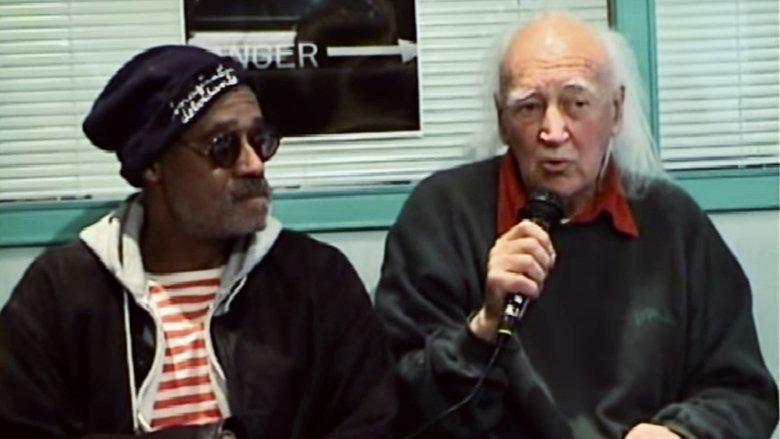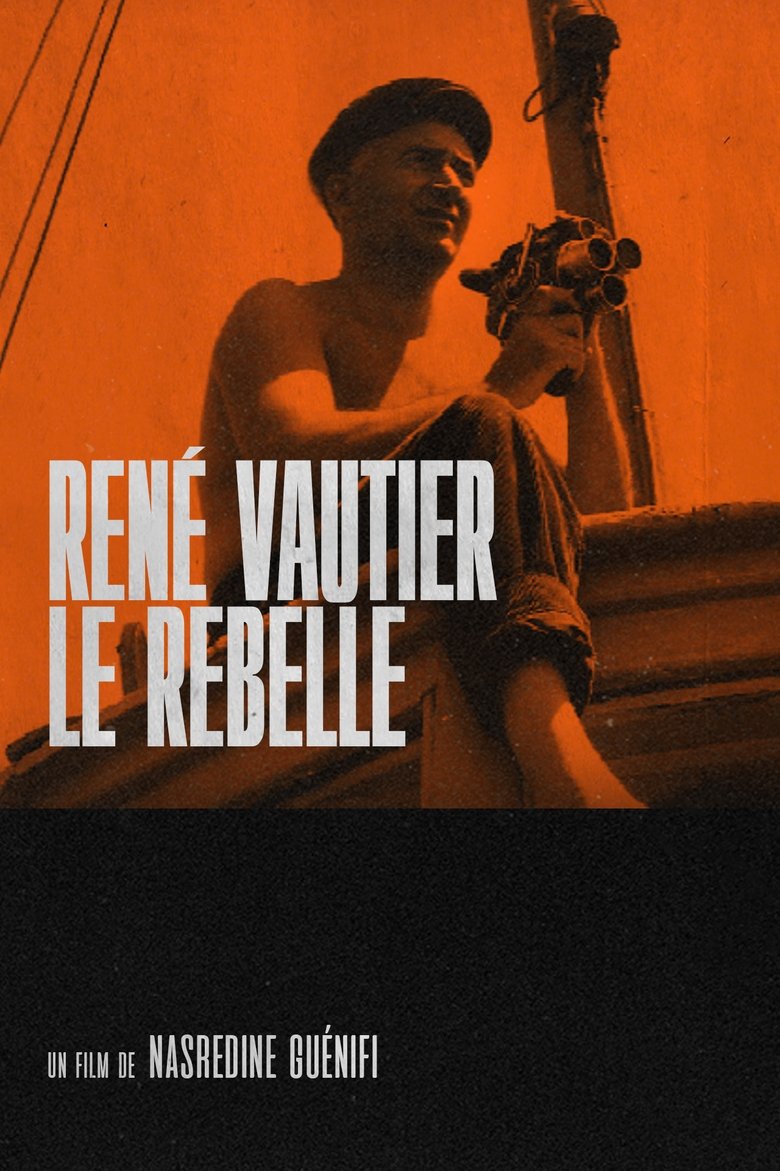

René Vautier, le rebelle
Genres
Overview
Details
Budget
$0
Revenue
$0
Runtime
0 min
Release Date
2000-04-29
Status
Released
Original Language
French
Vote Count
1
Vote Average
10
René Vautier
Self
Melvin Van Peebles
Self
Romain Goupil
Self
0.0
New Country - New People
A documentary about the history of settler groups that came to New Zealand from Europe.
1978-01-01 | en
7.2
Dawn of the Damned
This excellent feature-length documentary - the story of the imperialist colonization of Africa - is a film about death. Its most shocking sequences derive from the captured French film archives in Algeria containing - unbelievably - masses of French-shot documentary footage of their tortures, massacres and executions of Algerians. The real death of children, passers-by, resistance fighters, one after the other, becomes unbearable. Rather than be blatant propaganda, the film convinces entirely by its visual evidence, constituting an object lesson for revolutionary cinema.
1965-07-05 | fr
8.5
Rif 1921, una historia olvidada
Manuel Horrillo has visited for 7 years the fields where the clashes between the Spanish troops and the rebels of the protectorate took place during the so-called Rif War, a forgotten war of the Spanish collective imaginary.
2008-07-24 | es
0.0
American Santa
Black Santas are local heroes, spreading joy and love to children and families at a bustling mall during the Christmas season. But even during this special time, the ugly shadow of bigotry falls on the season's true spirit.
2023-06-16 | en
7.6
The Price of Protest
United States, September 1st, 2016. American football player Colin Kaepernick kneels during the national anthem, protesting police brutality against black people. Part of the population regards the gesture as an unacceptable affront to the flag. Later, he loses his place on his team. Today, however, he is considered by many as a true hero.
2019-08-18 | de
7.0
The Moroccan Labyrinth
2007-11-15 | es
9.0
The Rumba Kings
In the fifties, when the future Democratic Republic of Congo was still a Belgian colony, an entire generation of musicians fused traditional African tunes with Afro-Cuban music to create the electrifying Congolese rumba, a style that conquered the entire continent thanks to an infectious rhythm, captivating guitar sounds and smooth vocals.
2021-05-06 | en
0.0
Martin Luther King at Newcastle University
A remarkable event the great American civil rights leader, Martin Luther King makes a powerful speech on a unique visit to Newcastle University.
1967-11-13 | en
6.0
True Chronicles of the Blida Joinville Psychiatric Hospital in the Last Century, when Dr Frantz Fanon Was Head of the Fifth Ward between 1953 and 1956
1953, colonized Algeria. Fanon, a young black psychiatrist is appointed head doctor at the Blida-Joinville Hospital. He was putting his theories of ‘Institutional Psychotherapy’ into practice in opposition to the racist theories of the Algies School of Psychiatry, while a war broke out in his own wards.
2025-07-23 | ar
0.0
Edward Prince of Wales' Tour of India: Madras, Bangalore, Mysore and Hyderabad
This official travelogue of a royal tour follows the Prince on a series of regimental displays and a tiger hunt.
1922-01-13 | en
0.0
Edward Prince of Wales' Tour of India: Calcutta and Delhi
The future Edward VIII opens a durbar and enjoys a day at the races before inspecting the fire brigade in Calcutta.
1921-12-01 | en
0.0
Government House Garden Party
Scenes at a garden party given by Earl Lytton, Governor of Bengal, at Government House, Calcutta.
1923-08-01 | en
0.0
Edward Prince of Wales' Tour of India: Bombay, Poona, Baroda, Jodhpur and Bikaner
The future Edward VIII visits his Empire, with Indian royalty, elephants, palaces and temples.
1922-01-10 | en
0.0
Edward Prince of Wales' Tour of India: Peshawar, The Khyber Pass and Rawl Pindi
The future Edward VIII enjoys stunning mountain scenery on a visit to the Khyber Pass during his royal tour
1922-01-10 | en
0.0
Edward Prince of Wales' Tour of India: Malakand, Kapurthala and Dehra Dun
The future Edward VIII visits Malakand, Kapurthala and opens the Royal Military College at Dehra Dun
1922-10-01 | en
7.2
White Riot
Exploring how punk influenced politics in late-1970s Britain, when a group of artists united to take on the National Front, armed only with a fanzine and a love of music.
2020-04-03 | en
0.0
A Luta Continua (The Struggle Continues)
A Luta Continua explains the military struggle of the Liberation Front of Mozambique (FRELIMO) against the Portuguese. Produced and narrated by American activists Robert Van Lierop, it details the relationship of the liberation to the wider regional and continental demands for self-determination against minority rule. It notes the complicit roles of foreign governments and companies in supporting Portugal against the African nationalists. Footage from the front lines of the struggle helps contextualize FRELIMO's African socialist ideology, specifically the role of the military in building the new nation, a commitment to education, demands for sexual equality, the introduction of medical aid into the countryside, and the role of culture in creating a single national identity.
1971-10-31 | en
7.0
Arreda Homem Que Chegou Mulher
Documentary about terreiro women in Fortaleza who occupy the highest positions in the hierarchy, subverting the patriarchal tradition of religious communities.
2021-10-16 | pt
7.0
The Antifascists
A low-intensity war is being fought on the streets of Europe and the aim is on fascism. This critically acclaimed documentary takes us behind the masks of the militants called antifascists. In 2013 a group of armed nazis attacks a peaceful demonstration in Stockholm where several people are injured. In Greece the neo-nazi party Golden Dawn becomes the third largest in the election and in Malmö the activist Showan Shattak and his friends are attacked by a group of nazis with knives and he ends up in a coma. In this portrait of the antifascists in Greece and Sweden we get to meet key figures that explain their view on their radical politics but also to question the level their own violence and militancy.
2017-03-09 | sv
0.0
Melting Snow
Two tons of snow—flown from New Hampshire to Puerto Rico in 1952 in order to “gift” Puerto Ricans a “white Christmas”—become a metaphor for the colonialist paternalism of America’s relationship to Puerto Rico.
2021-04-08 | en